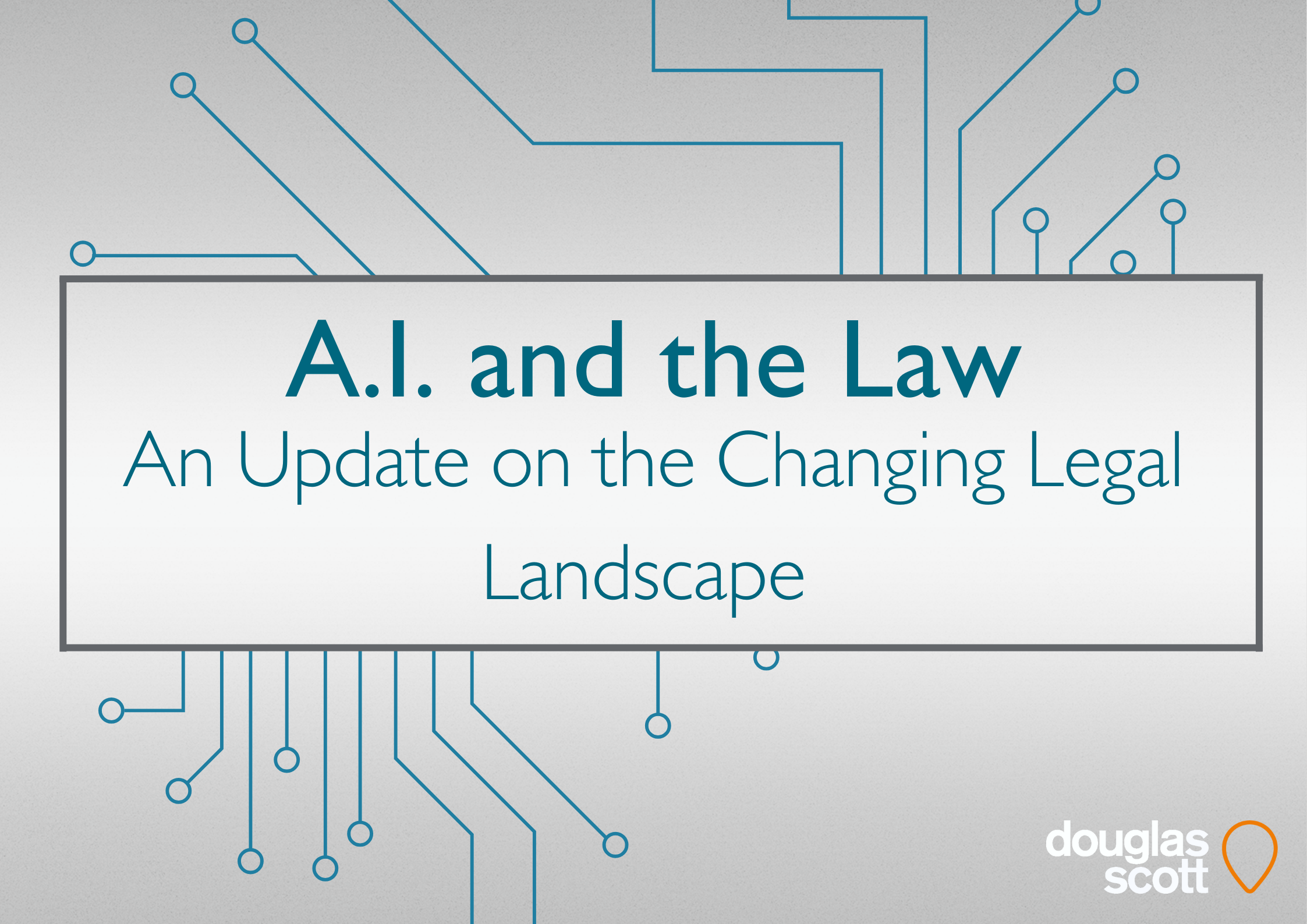A.I. & Law – An Update on the Changing Legal Landscape
Posted in Latest News on 26 Sep 2023

In the past few months, we here at Douglas Scott Legal Recruitment have been following the trends of Artificial Intelligence and its use in law.
Since we initially discussed this subject, Canadian company Thomson Reuters has published exciting research about legal professionals’ thoughts on AI that we felt was worth looking at.
58% of those surveyed said they felt optimistic about it being introduced into the workplace, reflected by several prominent law firms like Allan & Overy and Macfarlanes starting to integrate software like ChatGPT into their computer systems. Others are also reportedly looking to follow suit, which reflects this high percentage. Nine out of ten respondents also expected mandatory AI training to be introduced in the workplace in the next five years.
Another area in which the survey highlights AI being used to develop the legal market, is accessing legal services and creating greater equality and diversity. Having recently looked at the Ministry of Justice’s report into diversity in the legal profession, it is clear that some work still needs to be done in this area, and 81% of those surveyed from the UK believe that artificial intelligence may be able to help improve gender, economic and ethnic diversity. There have been reports about AI developing the same unconscious biases as humans, especially if the data they use to make decisions is subject to human organizing beforehand. However, it can be easier to recognise AI bias over human bias, and the technology is still developing and being worked on to eliminate factors like this.
Another primary concern that respondents to the survey highlighted as an issue is who has liability for artificial intelligence when it goes wrong. Almost half of those who responded to the study (49%) believed that tech companies should take the lead on AI regulation, while 40% were looking to the government to act. Some believe that any blame if these systems go wrong should lie with developers, while others believe those who employ those systems bear ultimate responsibility. But there is a school of thought that AI may even gain autonomy of its own and, therefore, will need its own legal status. But this is a way in the future, and there are more immediate concerns that legal professionals will want to address before this technology is used further.
Of course, AI is an ever-evolving field, and we will come back to it as it is developed further and newer uses are found for it. Despite some concerns, the report indicates that legal professionals are, by and large, optimistic about these developments and believe that artificial intelligence will free up time for them to deal with more complex casework that will be more valuable to clients. So long as issues about liability and bias are addressed (both the EU and the UK are looking at introducing regulations, but these are taking a long time to implement), AI can be a valuable tool for law firms.
Latest insight
-
Criminal solicitors – Are they the unhappiest legal sector?
18 Jun 2025 -
What motivates Employment solicitors to leave their roles?
03 Jun 2025 -
How happy are Residential Conveyancers?
29 May 2025 -
Is the Private Client market a static one?
28 May 2025 -
What can law firms do to protect mental health?
20 May 2025